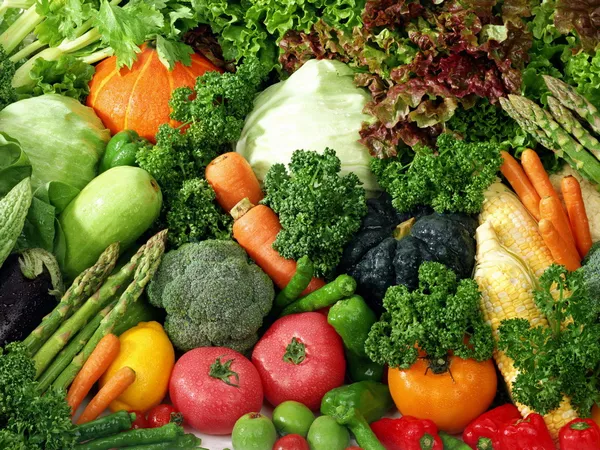Protein is an essential macronutrient that plays a critical role in various bodily functions, including muscle repair, immune support, and hormone production. Many individuals incorporate protein-rich foods into their diets for various reasons, including weight management and muscle building. However, questions often arise about whether excessive protein intake can lead to weight gain. In this comprehensive article, we explore the relationship between protein intake and weight gain, the impact of protein on metabolism and satiety, and how to strike a healthy protein balance to support your health and wellness goals.
Understanding Protein and Caloric Content
Before diving into the relationship between protein intake and weight gain, it’s essential to understand the caloric content of protein. Protein is a calorie-dense macronutrient, providing approximately 4 calories per gram. In comparison, carbohydrates and fats provide 4 calories and 9 calories per gram, respectively. Consuming excess calories, regardless of their source, can lead to weight gain over time.
It’s crucial to consider the overall caloric intake from all macronutrients, including protein, when aiming to manage weight effectively.
The Impact of Protein on Metabolism
Protein has a higher thermic effect of food (TEF) compared to carbohydrates and fats, meaning that the body expends more energy to digest and process protein. This increased energy expenditure during digestion can slightly boost metabolism, leading to the burning of additional calories.
Furthermore, protein has a greater impact on increasing satiety compared to carbohydrates and fats. Feeling fuller for longer after a protein-rich meal may reduce overall calorie intake, potentially supporting weight management efforts.
Muscle Building and Body Composition
Protein is a crucial nutrient for building and repairing muscles. When combined with resistance training or exercise, adequate protein intake can support muscle growth and maintenance, contributing to a favorable body composition.
Having a higher proportion of lean muscle mass can increase basal metabolic rate (BMR), the number of calories burned at rest. Consequently, individuals with a higher BMR may find it easier to maintain a healthy weight or achieve weight loss goals.
Excessive Protein Intake and Weight Gain
While protein can be beneficial for weight management and body composition, consuming excessive amounts of protein can lead to weight gain if the additional calories are not burned through physical activity.
As with any macronutrient, consuming more calories than the body needs can result in weight gain. If protein intake contributes to a caloric surplus, the excess calories will be stored as fat.
It is essential to find a balance between protein intake and overall caloric needs to avoid unintentional weight gain.
Individual Factors and Protein Requirements
Protein needs vary based on individual factors, including age, sex, activity level, and health goals. Athletes, individuals engaged in intense physical activity, and those looking to build muscle may require higher protein intake to support their specific needs.
However, excessive protein intake beyond what the body requires for its functions may not provide additional benefits and may contribute to unnecessary calorie consumption.
Protein and Satiety
As mentioned earlier, protein has a significant impact on satiety, making individuals feel fuller for longer periods. Incorporating protein-rich foods into meals can help regulate appetite and prevent overeating.
However, it is essential to balance protein intake with other macronutrients, such as fiber-rich carbohydrates and healthy fats, to create well-rounded and satisfying meals.
Considerations for Protein Sources
The source of protein can also influence its impact on weight management. Protein-rich foods like lean meats, poultry, fish, dairy products, legumes, nuts, and seeds provide essential amino acids and various nutrients.
Opting for lean protein sources can be beneficial for managing calorie intake, as they often contain fewer saturated fats and calories compared to protein sources high in added fats or sugars.
Subtitle 8: Finding the Right Balance
To find the right balance between protein intake and weight management, consider the following tips:
1. Determine Individual Protein Needs: Calculate your protein needs based on factors like age, sex, activity level, and health goals. Aim to meet the recommended dietary allowance (RDA) for protein while considering your overall caloric intake.
2. Prioritize Whole Foods: Opt for whole food sources of protein, such as lean meats, fish, poultry, legumes, nuts, and seeds, to ensure a diverse and nutrient-rich diet.
3. Monitor Portion Sizes: Be mindful of portion sizes when consuming protein-rich foods to avoid excessive calorie intake.
4. Combine with Exercise: Engage in regular physical activity, especially resistance training, to maximize the benefits of protein intake on muscle building and metabolism.
Conclusion
In conclusion, protein is a vital nutrient that can play a positive role in weight management and body composition when consumed in appropriate amounts. While protein can boost metabolism, increase satiety, and support muscle growth, excessive protein intake without considering overall caloric needs can lead to weight gain. Understanding individual protein requirements and balancing protein intake with a well-rounded diet and regular physical activity are key to achieving and maintaining a healthy weight. By making informed choices and seeking guidance from healthcare professionals or registered dietitians, individuals can enjoy the benefits of protein while supporting their overall health and wellness goals.


